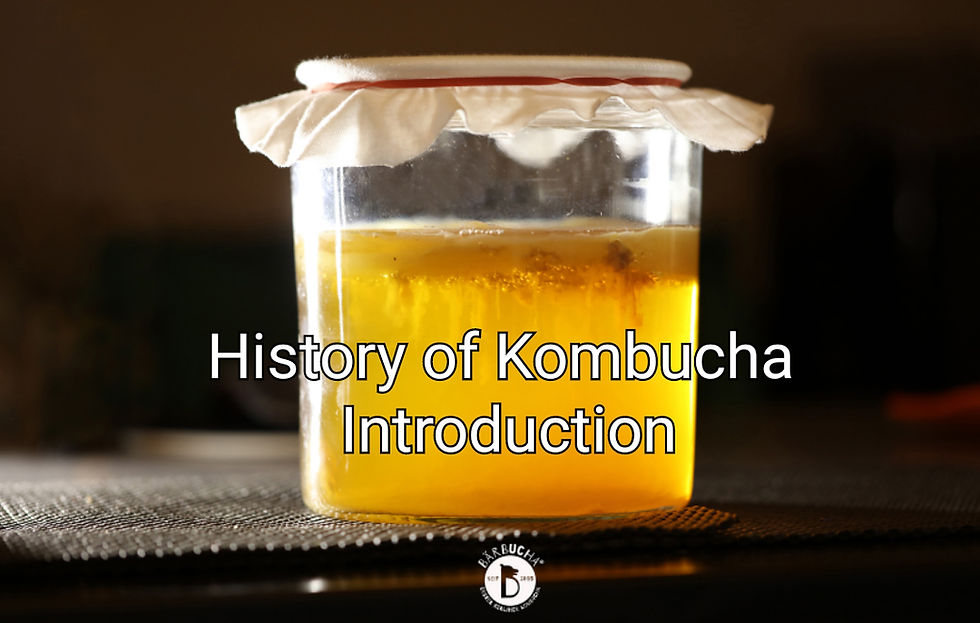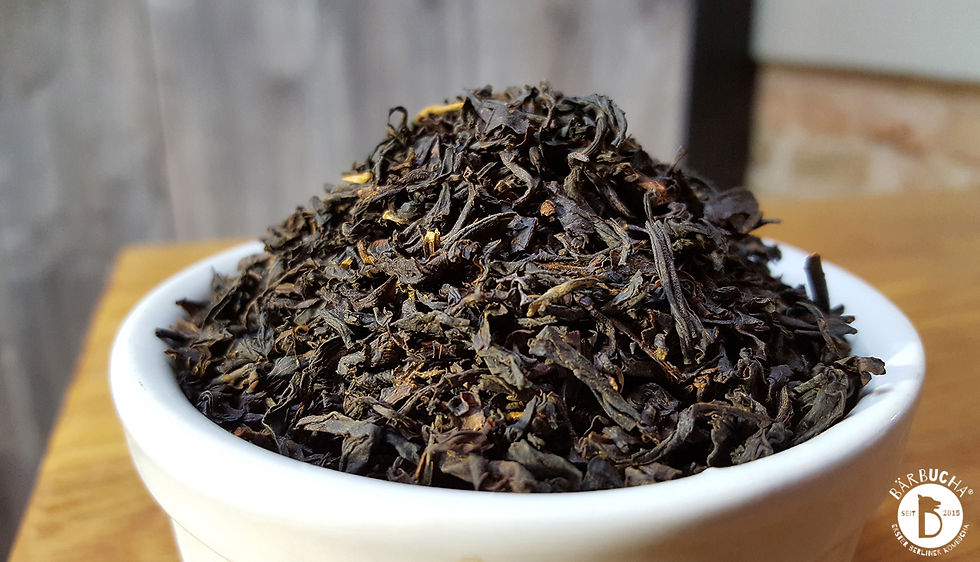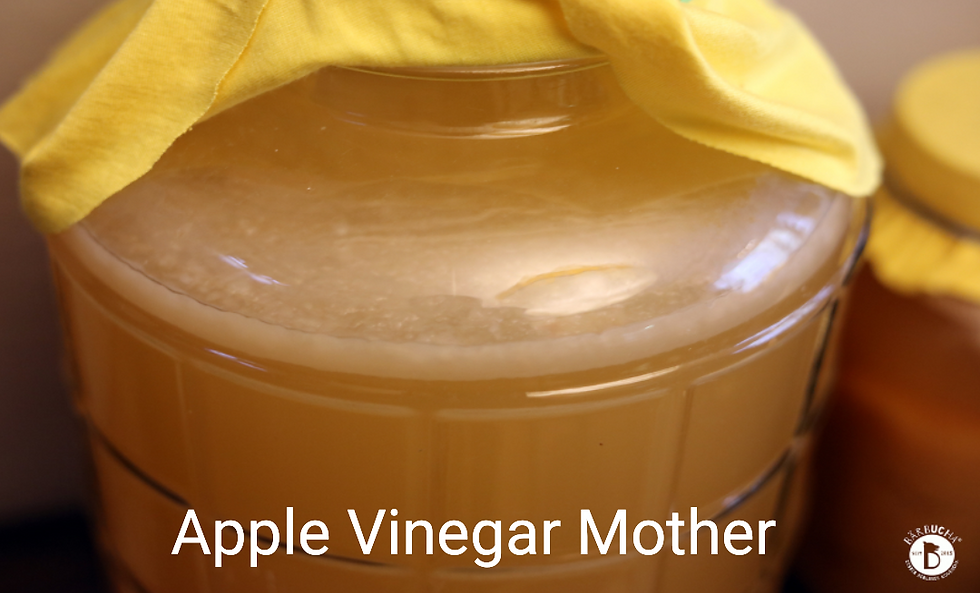History of Kombucha - Introduction.
- Tadeusz
- 1. Dez. 2020
- 6 Min. Lesezeit
Aktualisiert: 24. Mai 2023
My name is Tadeusz Zagrabinski and I am the founder of Bärbucha Kombucha in Berlin, Germany.
I have recently presented a short history of Kombucha during the Virtual Kombucha Summit that took place in November, 2020. Since, I only had a limited time frame to do that, I have decided to expand on this topic, in this, and in the upcoming posts.

It is not an easy topic to research, as the available sources of information, are scarce, especially when it comes to times before 1913.
Another thing that makes it quite difficult, is the fact that the word "Kombucha" is relatively new, and that all the countries that are historically connected to Kombucha (like China, Korea, Russia, or even Japan), have used different names for what we know today, as Kombucha.
When we look at the ingredients of "basic" or "original" Kombucha, namely tea and sugar, we generally think of China as the origin of Kombucha, as China is the home of tea.
There are also a lot of stories placing Kombucha in China long, long time ago.
I will try to verify them in the next part of this series.
But when we look at different names for Kombucha, we can not exclude the fact that, maybe some of those names described something else, than Kombucha.
As a matter of fact, Japan is the only country where the actual word Kombucha existed for quite some time. The problem is though, that Kombucha in that country, relates to a drink made with a seaweed called Kombu. A drink that is quite popular, but it's not fermented.

In Wikipedia you can find this particular statement:
"The etymology of kombucha is uncertain; however, it is speculated that it is a misapplied loanword from Japanese. It has been hypothesized that English speakers mistook the Japanese word kombucha to mean fermented tea, when in fact, fermented tea in Japanese is called kōcha kinoko (紅茶キノコ, "red tea mushroom")."
The word "Kombucha" creates quite a problem for modern commercial brewers in Japan, as when they call their fermented tea "Kombucha", they create a confusion among their clientele who is familiar with the tea, made from seaweed with the same name. (see here)
When we look at China, the word Kombucha is also quite unknown, as people who brew Kombucha over there, call it "Hongcha Jun" 红茶菌 ("red tea fungus") (here).
There's actually a funny story about that. We opened our place in 2015, and we have a Chinese store called "China Kultur" in our neighborhood. This place has lovely owners.
They were always walking past our place, but could not figure out what we were making, as Kombucha (as in Kombucha Cafe or Bärbucha Kombucha) did not mean anything to them.
One day though, when we put our Scobies on window display and they saw them, they came in right away.
They knew Kombucha from China, their home, but for them it was always Hongcha Jun, and not Kombucha.
So, at least we can see that there is similarity between Chinese and Japanese descriptions for this fermented tea.
Also in Korean "the word for kombucha is hongcha beoseo-tcha (버섯차), or “tea mushroom tea.” (here)
Now, let's take a look at Russia.
There, people who know Kombucha, know it as "чайный гриб" which translates to "tea mushroom" or "tea kvass". So, also a different name, and not Kombucha.
The association of tea and mushroom can be confusing, as throughout the history some real mushrooms were, and still are consumed in the form of tea.
Especially in Russia. Among those are Chaga, Reishi, Birch Polypores and Turkey Tails.
When we look at history of tea in Russia, it started in the first half of 17th century, and it became more affordable at the end of 18th century (here).
Taking this into account, it is hard to imagine that Kombucha could have been made in Russia before that time.
Unless it was not made with tea at the beginning, but with herbs.
But I will go back to this later.
When we look at tea history in China, we can also get some clues (here).
Although tea was consumed as medicine for quite a while, but it was not the "tea", as we know it today. The fresh leaves were picked and boiled, creating a bitter tasting liquid that was quite often sweetened.
What was easily available at that time was definitely honey, and some forms of crude rice sugar.
The tea was getting more refined around 7th century. But for quite some time that tea was, what we know today as, "green tea" and it was pounded into bricks. Later refinements created Oolongs, and finally in the mid 17th century black tea came into being.

Lapsang Souchong smoked tea is considered to be the first black tea.
There's a lovely story about how it came around (here)
Now, the reason why I mention all this is to create a background for the next part of this series, in which I will try to debunk some of the circulating stories about Kombucha.
There are two interesting things stemming out of all this. One, is that the Chinese, Japanese and Korean names refer to Kombucha as a "red tea bacteria".
Red tea (or Hong Cha) is basically what is known as black tea in the West. But there's a difference. There are very fine teas called Hong Cha that are produced both in China and in Taiwan, and they differ from regular black teas.
But regardless, red or black, they do not go back more than to mid of the 17th century.
Green tea on the other hand, goes way back.
Green tea consumed medicinally, and especially sweetened with honey (like in the times before 7th century), could lead us to something that we know today as "JUN" aka "Honey Kombucha"

Sweetened green tea could have been exposed to accidental wild fermentation.
Jun is now described as a cousin of Kombucha, and is being placed in Tibet, without any historical proofs.
As a matter of fact, the early stories about Jun are even less credible that the stories about Kombucha.
So if Kombucha truly originated in China, and it is truly a couple of thousand years old, then Jun would definitely fit the profile. Especially that "Jun" is a part of original Kombucha name in Chinese.
If that is not the case, then we have a problem.
And the problem stems from the fact that the first Kombucha recipes that we know of, were using black tea and white sugar, and those recipes are all relatively new. All of them are from the 20th century.
That in itself is also strange, considering that we can find very old recipes for making beer, like the one that goes back almost 4,000 years (here), or lots of evidence for wine making that goes back thousands of years back (here).
And beer and wine belong to the same category of fermented drinks.
If we take into consideration the earliest available recipes that we know (black tea and white sugar), then we can speculate that Russia is the origin of Kombucha, and not China.
And that is simply because in China, as teas became more refined, there was no more need for using sugar to sweeten it.
As a matter of fact, tea and sugar combination became a Western thing long time ago. And it is a highly unusual thing during tea ceremonies in China.
In Russia, on the other hand, there's been a long tradition of strong black tea and sugar consumption.

Finally, we can not exclude the fact that Kombucha Scoby is some kind of hybrid from Vinegar Mother. And we already know, vinegar making goes back thousands of years, to at least the times of Ancient Babylon (here). So maybe the idea of making a "tea vinegar" led to the creation of "Kombucha".

Or maybe, it came around naturally, as it is described by one girl in Slovenia.
She was able to create a wild Scoby, just by using rose hips and blackberry leaves.
She also claims that in the area that she lives in, people have been making drinks like that, for over hundred of years and that it was as natural, as sourdough making (more here)
So, whatever is the case, Kombucha origins are quite murky, and a lot more research needs to be done.
That research needs to be done in these specific countries: China, Korea, Japan and Russia. Only then, we can know more about where Kombucha originated from, and also when that happened.
When I personally have tried to get any information from people who are familiar with Kombucha, and who live or have lived in China, they always told me that the only information that is traceable, goes back to around 150 years.
This introduction is not final, and might be revised, once new information surfaces with time.
I am also looking forward to comments and suggestions.
Also, this whole series on Kombucha history can be shared, but under one condition: the original source (our blog) must be linked!


Comments